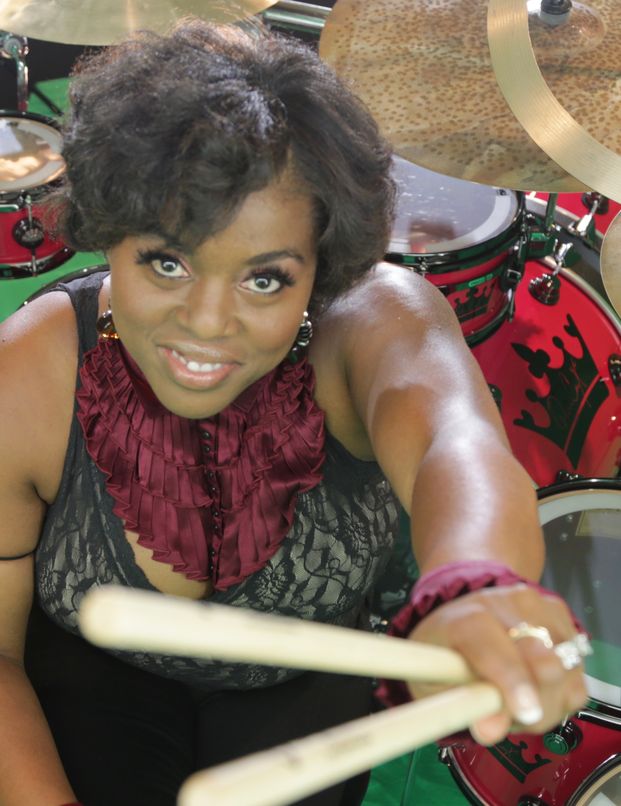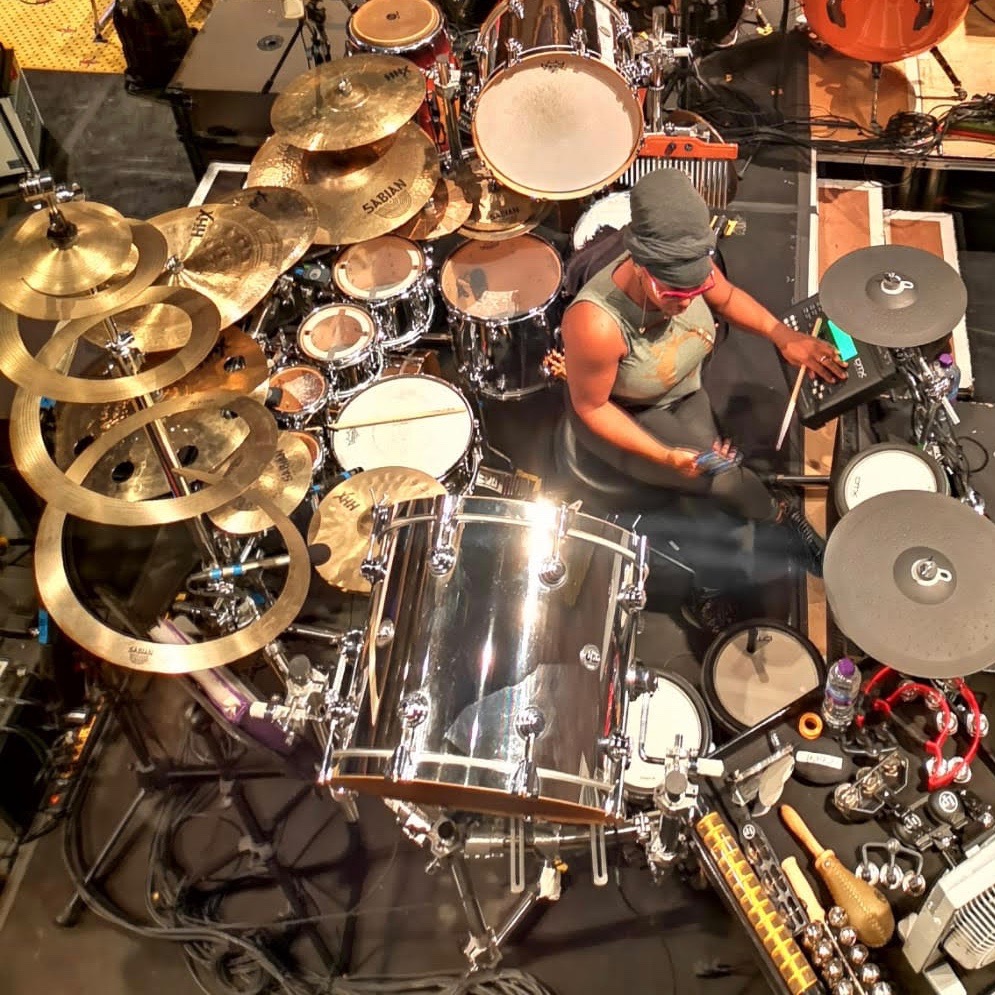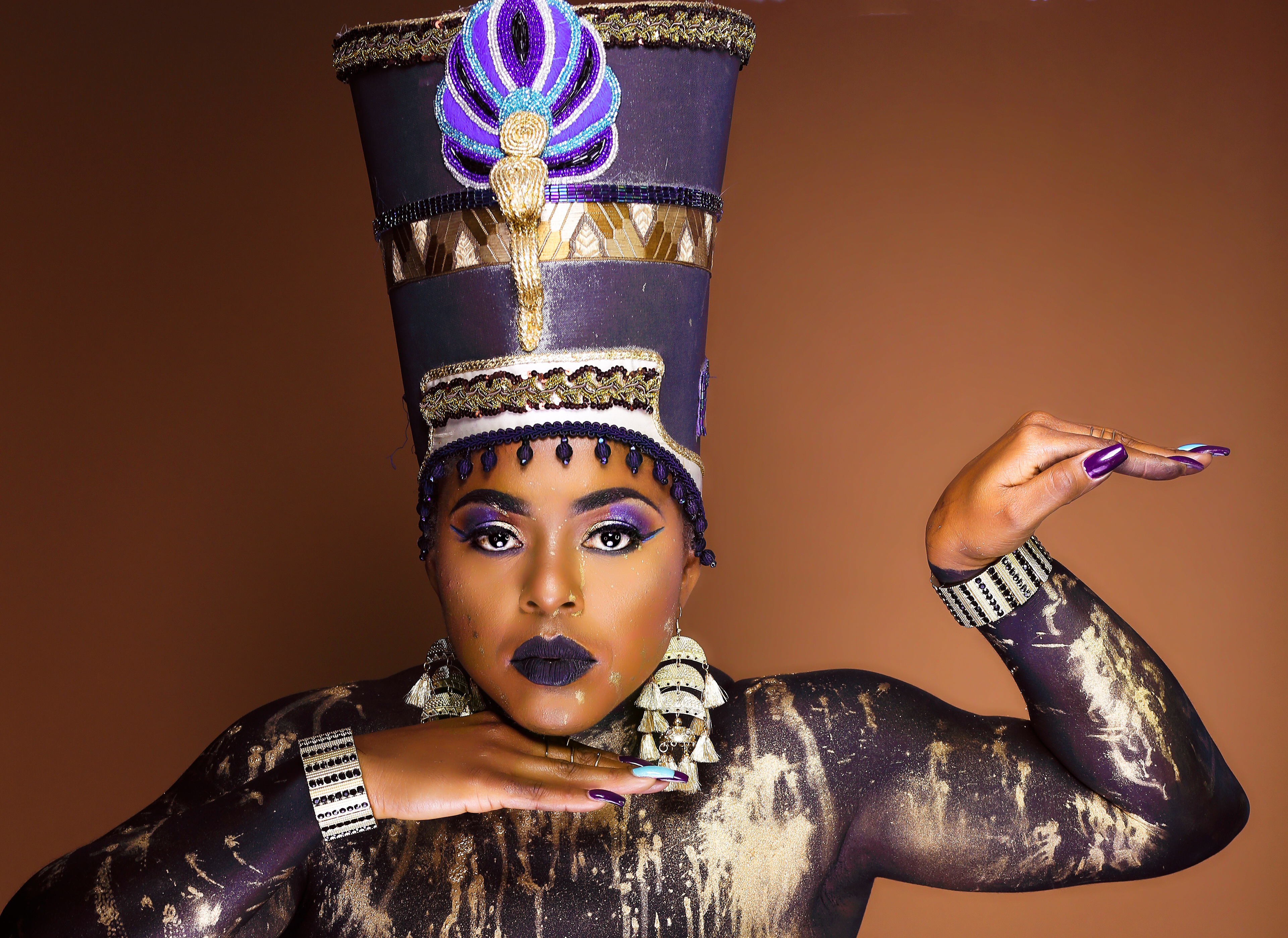Queen Cora is an inspiration. An incredible career has allowed her to perform drums at two Super Bowls, and toured with the likes of P!nk, Prince, and Beyoncé. As the house drummer for Beverly Bond’s annual Black Girls Rock Awards TV show on BET, she has performed with everyone from Jill Scott, Erykah Badu, India Arie, and H.E.R., to Mary J. Blige, Fantasia, and Yolanda Adams. She also owns a shipping container construction business, is an author, and has recently launched an international exchange program to empower young people in the arts and education.
Growing up in Houston, Texas, in a family that appreciated music, Queen Cora didn’t actually start playing drums until 9th grade.
“I did try and get in the band earlier on,” she recalls. “But there was some racial tension, so I didn’t really get the support I needed at that time. One of the councillors thought that I wasn’t going to keep up so if I would have joined the band in 8th grade, the director was going to put me in the 6th grade ensemble. That’s just not cool!
“I ended up doing some theatre work, and learning about productions, which became an opportunity; so I didn’t just sit in the corner and feel like, ‘oh I’m never going to be anything’. My grandparents and my parents didn’t teach us that way.”
As soon as she was given the opportunity, Queen Cora very quickly learned her craft.
“My band director in high school, William Portis, was very passionate about empowerment; and I learned very quickly from just naturally being competitive in other activities I was involved in, such as basketball, competitive diving, tennis, and chess. So by the time I got to playing the drums, keeping up with the kids that were more advanced just became another competitive challenge for me.”
She also joined the concert band, the jazz band, the percussion ensemble, and in her sophomore year, became the drumming section leader - the first female ever to do so.
“One thing I always say to young people - and to people in general – is that life is filled with upbeats and downbeats. It’s music. So, I did also have some downbeats in my life. My mother passed away a month before high school graduation, so it paved a different journey for me that I probably wouldn’t have anticipated, otherwise.”
And how did Queen Cora get into the industry itself?
“I had a few experiences,” she says. “I was definitely gigging by junior year; I was able to support myself fully, and live off campus, which was really good. It made my dad proud!”
It was in her senior year, whilst working at the Carter Baron Amphitheatre, that she met Sekou Bunch, the bass player who has recorded and performed with the likes of George Benson, Quincy Jones, and Michael Jackson. He and Rayford Griffen were performing with Patrice Rushen that evening, and Sekou came early for soundcheck.
“He just felt like there was something about me that was different, so he said, ‘I’ll give you my number, and whenever you come to LA, just call me, and let me know - I want to connect you with some people.’”
And call him she did. When she was next in LA, he put her in contact with numerous seasoned industry players.
“You know, when I would see my heroes in the drumming magazines, I would say, ‘one day I want to be like that!’ To actually connect with them was just excellent! I just felt like I was on the right path.”


